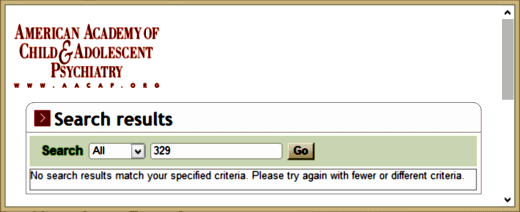by
In this study published on September 15, Arnedo et al. asserted that schizophrenia is a heterogeneous group of disorders underpinned by different genetic networks mapping to differing sets of clinical symptoms. As a result of their analyses, Arnedo et al. have made remarkable and perhaps unprecedented claims regarding their capacity to subtype schizophrenia. This paper has received considerable media attention. One claim features in many media reports, that schizophrenia can be delineated into “8 types”. If these claims are replicable and consistent, then the work reported in this paper would constitute an important advance into our knowledge of the etiology of schizophrenia.
Unfortunately, these extraordinary claims are not justified by the data and analyses presented. Their claims are based upon complex [and we believe flawed] analyses that are said to reveal links between clusters of clinical data points and patterns of data generated by looking at millions of genetic data points. Instead of the complexities favored by Arnedo et al., there are far simpler alternative explanations for the patterns they observed. We believe that the authors have not excluded important alternative explanations – if we are correct, then the major conclusions of this paper are invalidated.
Analyses such as these rely on independence in many ways: among variables used in prediction, absence of artifactual relationships between genotypes and clinical variables, and between the methods of assessing significance and replication. Below we identify five specific areas of concern that are not adequately addressed in the manuscript, each of which calls into question the conclusions of this study.
A. Ancestry/population stratification…B. X chromosome [chrX]…C. Linkage disequilibrium [LD]…D. SNP selection…E. Replication…Conclusions: Given the remarkable claims made by Arnedo et al., it is essential that alternative explanations be excluded. Unfortunately, the authors do not provide the necessary evidence. As presented, their methodology is opaque [even to experts], meaning that their results cannot be independently validated. Arnedo et al. do not consider alternative explanations for the phenomena that they observe, such as confounding from ancestry and LD, even though these are well-known issues for the statistical methods that they employ and have been studied extensively in the statistical and population genetics literature. In addition, their multistep analysis approach is subject to multiple issues as noted above. We believe that it is highly likely that the results of Arnedo et al. are not relevant for schizophrenia. We urge great caution in the interpretation of the results of study.
 watching a Battle of the Titans. At least that’s where I am when it comes to this kind of research. The criticisms in A-F above that I left out of my summary are far reaching – untested confounding factors like ancestry and gender, faulty analytic and statistical methodology, replication errors. And their conclusion…
watching a Battle of the Titans. At least that’s where I am when it comes to this kind of research. The criticisms in A-F above that I left out of my summary are far reaching – untested confounding factors like ancestry and gender, faulty analytic and statistical methodology, replication errors. And their conclusion…But the main thing I wanted to write about was PubMed Commons – something whose power I hadn’t quite realized Heretofore, once an article was posted in PubMed, it may have had a few things appended over time. Retracted articles were usually annotated. If there were published letters, they might be referenced with links. But it required journal access to see the letters and they were slow in coming. So a questionable article often languished for many months before any sign of the dissent showed up, if it showed up at all. Many of the disreputable industry funded clinical trials have nothing in PubMed to let a reader know of the problems. In the case above, an international consortium was on the case within two weeks. Take a look. Then look at the infamous Paxil Study 329 with the old links above, and the new below, a comment added when PubMed Commons went live a year ago. Here’s Dr. Karen Dineen Wagner’s write-up about an equally questionable pair of Zoloft trials with many links, but no comment [just waiting for the comments it deserves]. Any author indexed in PubMed can open a Commons Account and leave a comment. Among the major contributors to the problem with clinical trials of the psychiatric drugs, first was that no one much was looking, but even if they were, there was no easy public way to post comments to flag the literature.
It’s easy to get discouraged when reforms that seem so obviously right move so slowly or come in only an incomplete form [beyond the blind…, what we claim to be…], but probably the most important thing isn’t necessarily the enduring safeguards, but rather the ongoing awareness and the mechanisms to alert people to instances that need attention. Right now, there’s a heightened awareness of the problems in our literature. But what matters is that the vigilance lasts beyond the news cycle and we don’t have to look at empty spaces like this anymore:

I wanted to write a response to that gene study, too. I caught it as false right away. Basically, they kept grouping people however they wanted then said that all the people in a given group were alike. Well, duh, because you put them in that group. The trouble is, people with so called “schizophrenia” change groups each time they show up clinically.
Saying people with delusions are genetically different than people who have auditory hallucinations is pretty weird since people’s “symptoms” change with time. People may switch their primary clinical presentation at each different hospitalization.
I know for me, I have gone from mainly visual hallucinations (which I know how to handle), to paranoia, which is really hard to parse lately. I’m recovering from a traumatic brain injury from a bike wreck, plus a bad dental infection, so when you add in paranoia and defensive medicine, Lord knows what the truth is.
I missed your blog a lot though. I’ll be back on line more soon. I have a lot of pent up stuff to say. Plus some really good ideas to share.
I’ve been thinking about this paper, on and off, since you posted it here a couple of weeks ago. I find it interesting Interesting Breen et. al are most critical of the aspect of the paper concerned the association of genes and clinical symptoms. For me, it was extraordinary claims the paper made about the phenotypic penetrance of the SNP sets.
It’s this claim that keeps coming back to me. The more I thought about the 70-100% association of SNP sets with schizophrenia, the less it made any sense. The co-occurence of schizophrenia in monozygotic twins is only 50% (and that’s at the high end, Bentall suggests 25% is more likely if we use more modern studies). The incidence rate of schizophrenia in rural areas is a little over half the rate in cities. Schizophrenia is also associated with abusive childhoods. And so on and so on. So while schizophrenia is certainly associated with heredity, that’s only part of the story, and so say more studies than anyone could read in a lifetime.
Lots of genes are associated with things, but it’s only in rare cases that you can say a particular gene or set of gene that is entirely responsible for a disease. This is especially true for complex traits, so any genetic explanation f schizophrenia needs to take environment into account.
Just as Corrina says, this problem probably goes for symptoms too. It seems unlikely that we could (or should even try) to account for a lifetime of diverse and complex experience with a small handful of genes.
Genes aren’t stone tablets. Can we move on now? There is a constant feedback between genes and environment, no one can sort that out, at this time. Recursion is the rule.
Humans have 80% of the same DNA as cows, and share 98% of our DNA with chimpanzees. Why do these researchers pretend that they can tell us intimate details of our self-expressions from the other 2% of our DNA? What’s so hard about recognizing the fact that humans have niches? That we have culture? That we have experiences in the world that shape us and misshape us?
My neurologist can look at images of lesions in brain and can’t tell which ones cause what effects, unless there’s one on the optic nerve(s). So, what are these generalist genetics studies proving? Aside from tipping their hands, I mean.
I’ve no doubt that there are as many types of schizophrenia as can be described, the taxonomy in psychiatry is not all that objective and is descriptive. And, I also have no doubt that psychosis can be caused by physical causes. Schizophrenia as a result of a virus in utero? That’s not unbelievable; but it doesn’t tell us much beyond that, does it?
Besides, I can’t not believe that aside from getting grant money for making bold claims, this mapping would be used to “prevent” schizophrenia by putting perfectly healthy people on antipsychotic medications and whatever else they could throw at it.
Like Corinna and adam, I’d been thinking about this, too.
In recent years, it’s been thought that MTHFR genetic variations account for various conditions and diseases. At first, direct correlations were drawn between various permutations and conditions. (It’s still a fad in psychiatry.) But therapeutic interventions supposedly to correct methylation worked very inconsistently. (Ultimately, it’s trial and error.)
Then it was found that maybe 20 other genes are involved in methylation, maybe even more, on top of the two genes identified originally, resulting in at least 22-squared permutations or 484 combinations. That we know of.
Given we’re talking about a dynamic self-regulating system, the chart of how these genes interact is endlessly recursive — not taking into account the polymorphisms and environmental factors.
The probability that there are only handful of polymorphisms governing those artificially compartmentalized schizophrenia symptoms is approximately zero. But here’s more cargo-cult psychiatry — there must be a pony in here somewhere!
Right now, I would like to punch logical positivism in the nose. So many people embrace this world thinking it’s scientific while too much of scientific endeavor is circling the drain and taking our money with them— money that could be better spent on independent research and solving practical problems.
Scientism is mad as a hatter.
this worldview
Coffee consumption: It’s in your DNA
http://www.usatoday.com/story/news/nation-now/2014/10/07/dna-link-coffee/16852617/
All my ancestry is north of the 45th parallel but somehow coffee, a tropical crop, is in my DNA.
OK…..whatever
Guess it has nothing to do with the fact that lungo cappucinos are damn yummy…
Wondering if I have the gene for Reisling, Pinot and Rolling Rock but not Merlot, Chardonnay and Bock based on current preferences….can we crowdfund research grants to answer this important question?
“Blinding” studies of alcohol preference based on genetics would be easy with methyl alcohol. Mickey, since you like in the Blue Ridge mountains, do you know how to get a hold of some bad moonshine?
PS I love the Blue Ridge mountains and want to retire on Lake Keowee.